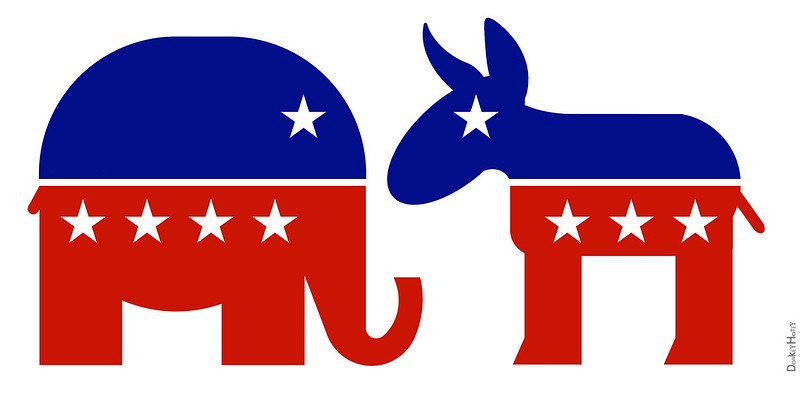
This week I had a response from a reader in the mid-west that I want to build on for this post. This brother, whom I respect for reading my writing though we disagree with some regularity, pleaded,
“Please Tony, stop the Trump and Hannity and Right Wing bashing. The ‘shouting’ you mention . . . comes equally from both sides. As ugly as Fox News gets, MSNBC is just as ugly and noisy and lying . . . The Republican leadership is no better or no worse than the Democrats. Neither side is any cleaner than the other and, if you think so, you are only kidding yourself.”
He argued that this was a time for unity, and not a time for launching zingers at the other side. I get that, heck, I’ve written the same thing here, more or less.
But here’s where we part company. The Republicans and the Democrats are not the same. Underlying too much of contemporary reporting is a “false equivalency,” which posits that by representing “both sides” balance and objectivity are attained.
The popularized equivalent holds, “they’re (R’s and D’s) all the same.” Or “both sides (parties) are corrupt.”

As mentioned previously I’ve been reading Ezra Klein’s Why We’re Polarized. At the same time that I was pondering my reader’s response I happened to read Klein’s chapter, “The Difference Between Democrats and Republicans.”
Klein begins by talking about the scholarly team of Thomas Mann and Norm Ornstein. The two political scientists have been well-known, even famous in their world, for collaboration despite difference. Mann works for the liberal-leaning Brookings Institution. Ornstein for the conservative-leaning American Enterprise Institute. They have teamed up on books and regularly appeared on news shows, lending to their hosts the air of balance and fair-play. Then the duo became to feel qualms. These were expressed in their 2012 book, It’s Even Worse Than It Looks. Here’s an excerpt quoted by Klein:

“Today’s Republican Party . . . is an insurgent outlier. It has become ideologically extreme; contemptuous of the inherited social and economic policy regime; scornful of compromise; unpersuaded by conventional understandings of fact, evidence and science; and dismissive of the legitimacy of it’s political opposition, all but declaring war on the government. The Democratic Party, while no paragon of civic virtue, is more ideologically centered and diverse, protective of the government’s role as it developed over the course of the last century, open to incremental changes in policy fashioned through bargaining with the Republicans and less disposed to or adept at take-no-prisoners conflict between the parties.
“This asymmetry between the parties, which journalists and scholars often brush aside or whitewash in a quest for ‘balance,’ constitutes a huge obstacle to effective governance.”
While there are individual exceptions, the Republicans as a political party have shown themselves less interested in actual governance than in throwing spanners in the works — or simply eliminating “the works,” as in the National Security Council office focused on global health and pandemics. This becomes a real problem in a crisis like the current one.
In the balance of Klein’s chapter he discusses structural factors that have kept the Democratic Party closer to accepted civic norms and established institutions (an argument borne out by Biden being their leading candidate for the nomination). Their language is restrained. But their point is clear — the two parties aren’t the same. To act as if they are is false.
The “Trumpification” of the GOP since 2016 is both a confirmation of Mann/Ornstein’s point, and a further reason to reject the “they’re all the same,” “both political parties are corrupt” argument. Today’s Trump-led Republican Party is, as my friend Tommy might put it, “a different breed of cat,” and it’s feral.
Discover more from Post Alley
Subscribe to get the latest posts sent to your email.

If the Democratic Party encouraged or even allowed actual diversity, intellectual honesty or charitable disagreement, I would gladly, perhaps gratefully vote with them. As it is, the progressive thought police have taken over, dictating what diversity looks like, what information is considered valid and which viewpoints must be defended. I grieve the loss of plurality with my friends who still consider themselves Pro-Life Democrats.
I agree.
And when our Secretary of State insinuates that the UN should look into our handling of people’s rights, i move off center and lean right.